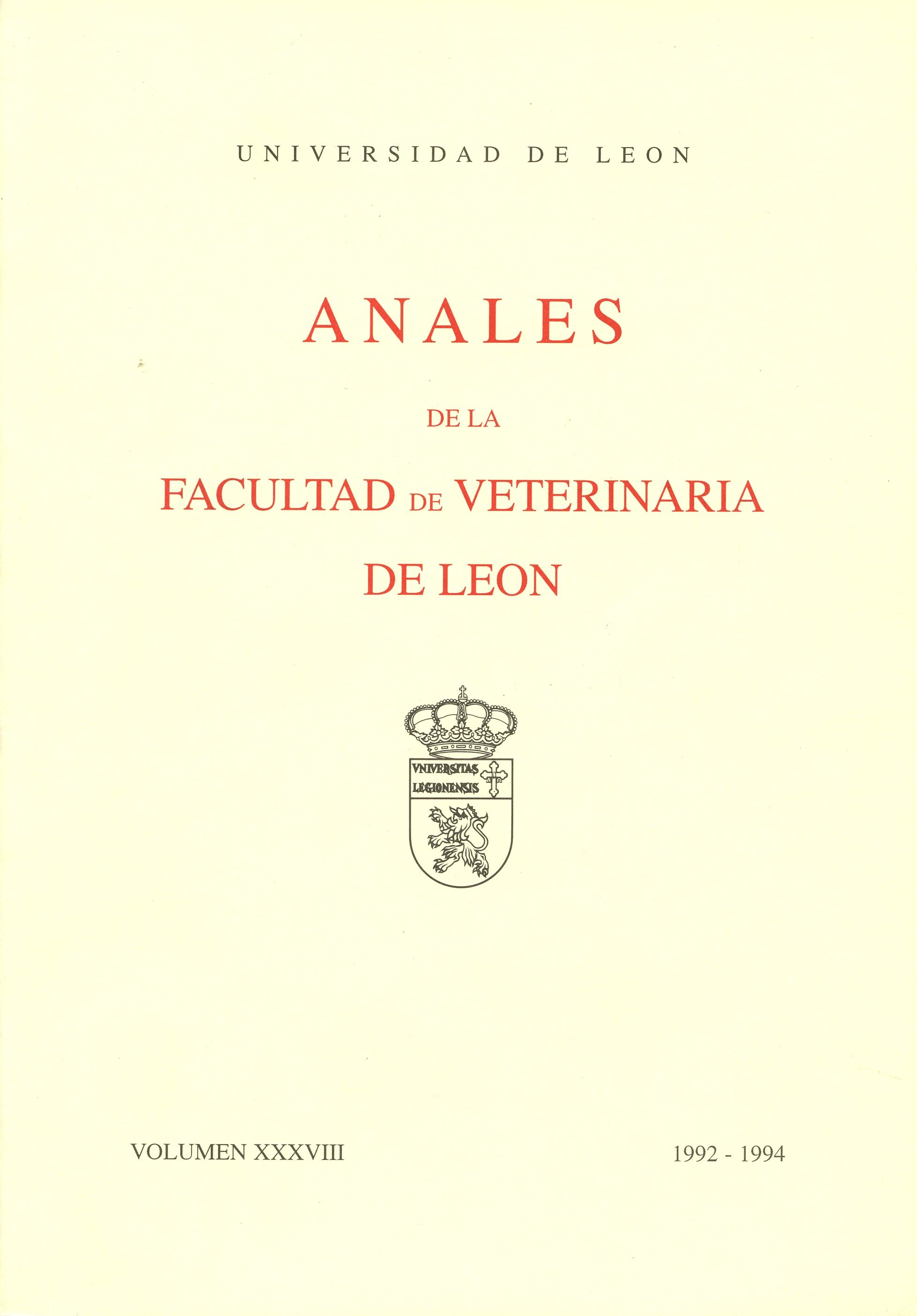Transmission of pestivirus infection to sheep and goats in close confinement with a calf persistently infected with a vaccinal strain of bovine virus diarrhoea virus
DOI:
https://doi.org/10.18002/analesdeveterinaria.v38.7869Keywords:
Pestivirus, Transmission, Vaccine, RuminantsAbstract
A five months calf persistently infected (P.I.) with a vaccinal strain of bovine pestivirus was confined, for 11 weeks, in close contact with two seronegative goats and two seronegative pregnant sheep in the fourth month of gestation. Transmission of infection was confirmed by a neutralization assay of the cytophatic effect of the Oregon C24V strain on EBTr cells. Goats and sheep seroconverted during the 2nd and 3rd weeks of confinement. Serum antibody titres increased, mainly in the first four weeks, and remained constant after reaching the maximum titers between the fifth and the ninth week. Vaccinal bovine pestivirus strain also infected the two ovine fetuses in a pregnant sheep as was shown by the presence of specific serum neutralizing antibodies before the colostrum intake. Epidemiological implications of using live vaccines in mixed herds are discussed.Downloads
Download data is not yet available.
Downloads
Published
1994-01-02
Issue
Section
Research papers
License
Copyright (c) 1994 Manuel González González, María Muñoz Fernández, Marcelino Álvarez Martínez

This work is licensed under a Creative Commons Attribution-NonCommercial-ShareAlike 4.0 International License.
Los autores que publican en esta revista están de acuerdo con los siguientes términos:
- Los autores ceden de forma no exclusiva los derechos de explotación (reproducción, distribución, comunicación pública, transformación) a la Universidad de León, por lo que pueden establecer, por separado, acuerdos adicionales para la distribución no exclusiva de la versión de la obra publicada en la revista (por ejemplo, alojarlo en un repositorio institucional o publicarlo en un libro), con un reconocimiento de su publicación inicial en esta revista.
- Este trabajo se encuentra bajo la Creative Commons Attribution-NonCommercial-ShareAlike 4.0 International License. Puede consultarse desde aquí la versión informativa y el texto legal de la licencia.
- Se permite y se anima a los autores a difundir electrónicamente las versiones pre-print (versión antes de ser evaluada) y/o post-print (versión evaluada y aceptada para su publicación) de sus obras antes de su publicación, ya que favorece su circulación y difusión más temprana y con ello un posible aumento en su citación y alcance entre la comunidad académica.







